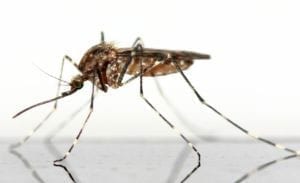There are a number of different mosquito-borne illnesses. But sometimes it can be difficult to make an accurate diagnosis when these illnesses – and many others – share similar symptoms such as fever or body aches. If you show up to the doctor with only a fever, it may also be hard to link that specific symptom to a condition like Zika virus.
According to Science Daily, the current method for detecting Zika virus infections is by using polymerase chain reaction tests. Within a laboratory setting, scientists are able to amplify viral genetic material and provide a concrete diagnosis. This complex process may take some time to complete. It also requires up to 40 different temperature shifts to prompt this amplification.
Creating a Smartphone Tool
For this reason, a research team from the University of Illinois at Urbana-Champaign (UIUC) has been working to develop a fast and effective tool for Zika virus identification. In their study, published in Analyst, the researchers began by evaluating blood samples with Loop-Mediated Isothermal Amplification (“LAMP”). Unlike traditional methods, LAMP does not require multiple temperature shifts or blood sample purification methods. Learn more about LAMP.
The test-performing tool is then clipped to the smartphone, along with a special cartridge inserted into this tool. This cartridge contains elements that aid in viral detection. After clipping this to the smartphone, a single drop of blood is added to the cartridge. At this point, the different chemicals begin breaking down and heating up the blood and amplifying the Zika virus. If the cartridge turns green, it means that Zika virus has been detected.
Altogether, this entire process takes just under half an hour, making it a fast and efficient way to identify Zika virus infections. Although more work is needed to further develop this device, it does show promise in the future of identifying and treating this viral infection (and potentially others)!
What is Zika Virus?
Spread by daytime-active Aedes mosquitoes, Zika virus is a viral infection that can be especially dangerous to pregnant women and their babies. It was first discovered in 1947 and has since seen multiple outbreaks globally. Currently, Zika virus is most common in tropical Africa, the Pacific Islands, and Southeast Asia. Zika virus can cause serious birth defects such as brain defects or microcephaly (an abnormally small head size). Unfortunately, there is no treatment for Zika virus. Doctors are also unable to tell how likely it is that Zika virus will affect a pregnancy or what kind of birth defects may occur. Outside of mosquitos, this virus can be spread through blood transfusion, from mother to child, or through sexual intercourse. In many cases, symptoms are typically mild and last for about one week. These symptoms can (but do not always) include:
- Fever
- Joint and muscle pain
- Fatigue
- Appetite loss
- Rash
- Headaches
- Conjunctivitis




-300x300.jpg)


